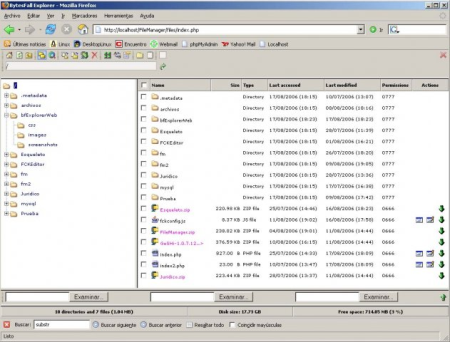No solo de Google vive el programador, y en ese caso se trata de Yahoo y la posibilidad de jugar con el geoposicionamiento gracias a su API.
Los ejemplos que muestra el enlace al que referencio son bastante sencillos y se basan en una llamada HTTP, que puede devolver distintos formatos.
La base de la aplicación sería este script:
<?php
function request_cache($url, $dest_file, $timeout=43200) {
if(!file_exists($dest_file) || filemtime($dest_file) < (time()-$timeout)) {
$stream = fopen($url,'r');
$tmpf = tempnam('/tmp','YWS');
file_put_contents($tmpf, $stream);
fclose($stream);
rename($tmpf, $dest_file);
}
}
function yahoo_geo($location) {
$q = 'http://api.local.yahoo.com/MapsService/V1/geocode';
$q .= '?appid=rlerdorf&location='.rawurlencode($location);
$tmp = '/tmp/yws_geo_'.md5($q);
request_cache($q, $tmp, 43200);
libxml_use_internal_errors(true);
$xml = simplexml_load_file($tmp);
$ret['precision'] = (string)$xml->Result['precision'];
foreach($xml->Result->children() as $key=>$val) {
if(strlen($val)) $ret[(string)$key] = (string)$val;
}
return $ret;
}
?>
El resto de los ejemplos son muy sencillos de seguir.
GeoCool!

me parece una muy buena alternativa lo probare en mi sitio
Hola Helio, ya me contarás que resultados te da.
Saludos
Pues lo miré por encima en busca de ideas para el fw que estoy desarrollando y me impacto en que uno de los referers bloqueados fuera iespana :p
Vaya, parece poco fiable 🙁